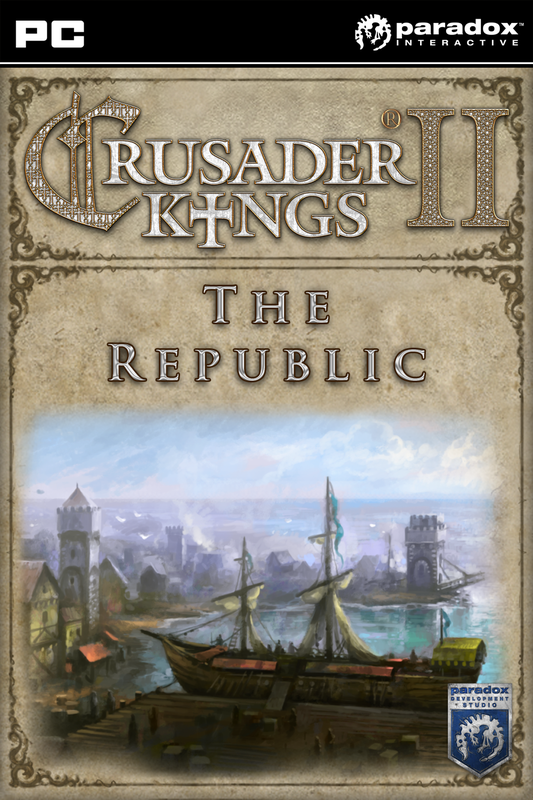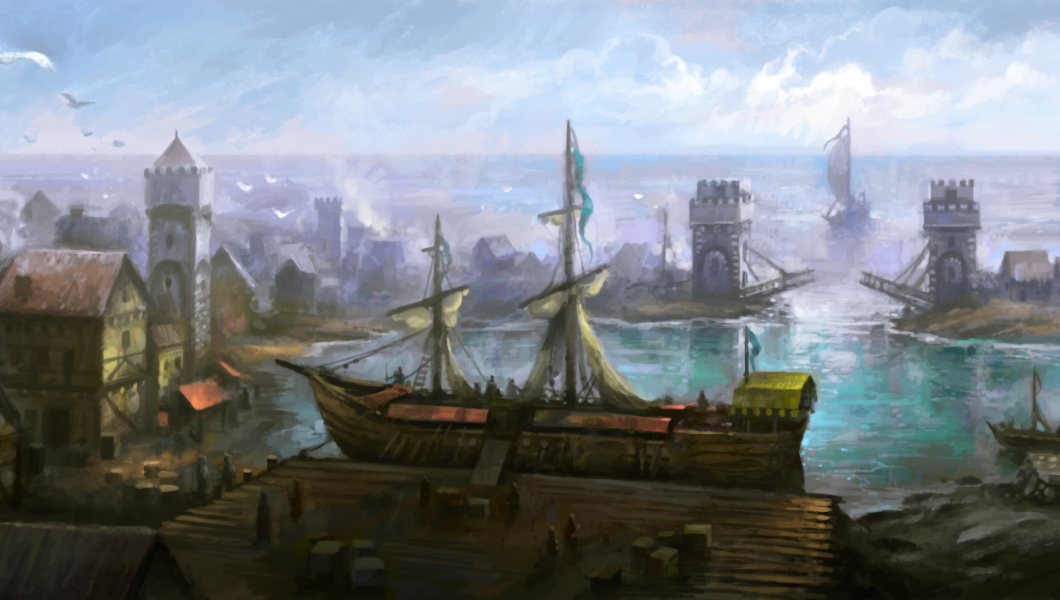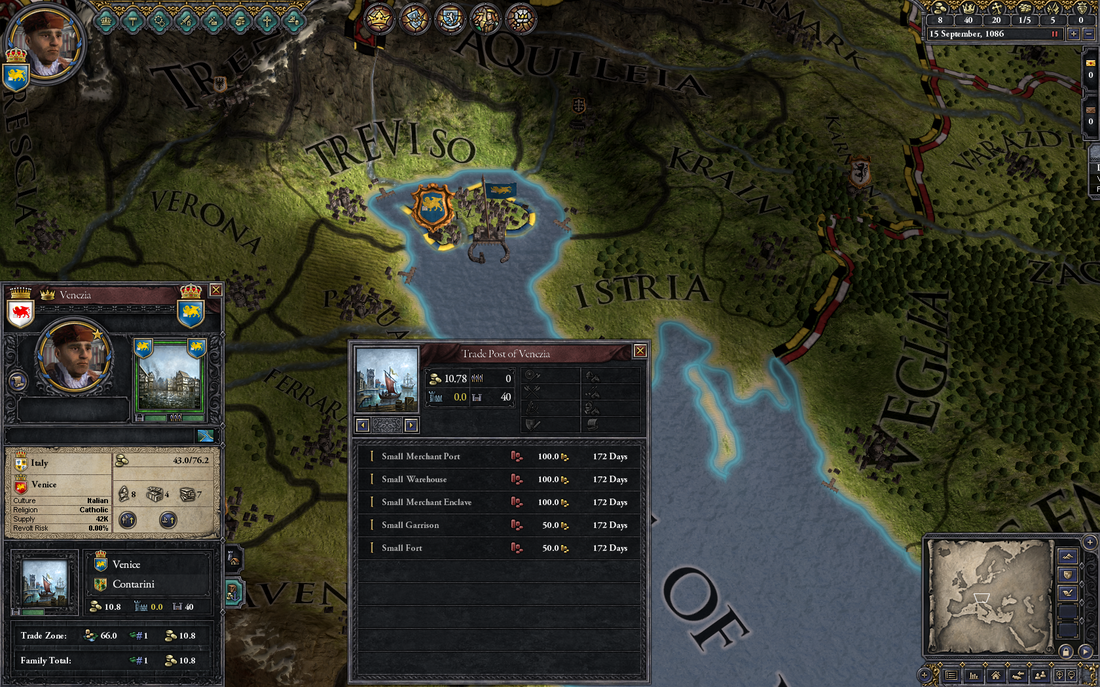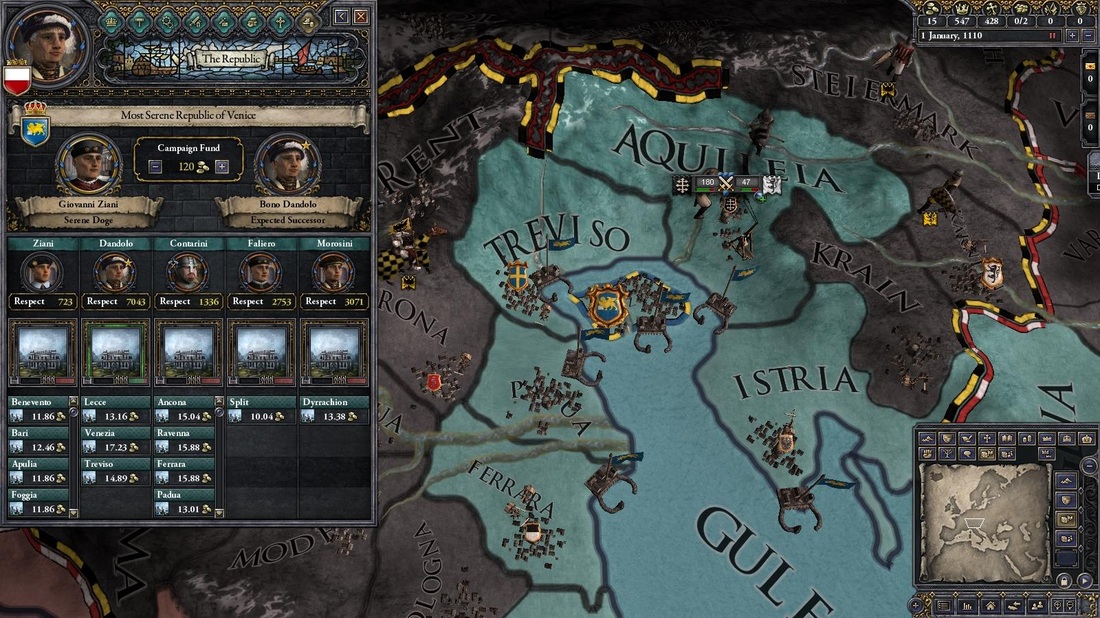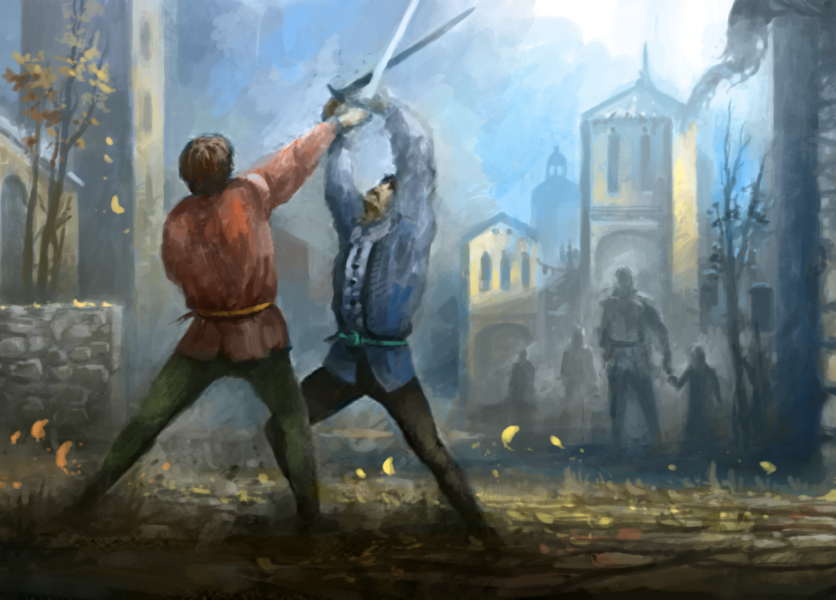| Minimum system requirements
| |
Crusader Kings II: The Republic Review
The Republic was released as the third expansion for the strategy game Crusader Kings II last week. If you rememberCrusader Kings II, you’ll remember an intricate grand strategy game focused on building your legacy – all the way down to its personal roots of the people in your bloodline. Heavily laden in history with an unprecedented focus on the people behind the history, Crusader Kings II has all the hallmarks of a game made by Paradox Development Studios, who are well-known for providing gamers with an extremely immersive experience through complexity and depth. It’s a game that strays away from the modern approach to the RTS genre and instead looks to challenge you through diplomacy and economy while providing a much deeper micromanagement level of all the subtle details in-between.
For fans of Crusader Kings II, the Republic offers the same underlying theme, but with a fresh approach that brings with it an array of new challenges and strategies – as well as a direct focus on the financial elements of the merchant empires: Venice, Genoa, Pisa, the Hanseatic League, or Gotland. These empires are finally able to be played and experienced in this expansion, something the game’s many fans have been asking for.
The game still takes place between the years 1066 and 1452, but instead of being a feudal lord or king, you play as the head of a patrician family battling for control over the merchant republic. This becomes not only a battle of wits, but one of wealth: the patrician families are driven by money rather than bloodshed and a lot of the expansion’s additions are thematic as such. For example, one of the interesting new features in this expansion are the trade posts. Expanding your trade posts, as well as defending them, is vital to your success. They increase your income as well as have a variety of new buildings that can be used to increase its defense in case you come under siege.
The game still takes place between the years 1066 and 1452, but instead of being a feudal lord or king, you play as the head of a patrician family battling for control over the merchant republic. This becomes not only a battle of wits, but one of wealth: the patrician families are driven by money rather than bloodshed and a lot of the expansion’s additions are thematic as such. For example, one of the interesting new features in this expansion are the trade posts. Expanding your trade posts, as well as defending them, is vital to your success. They increase your income as well as have a variety of new buildings that can be used to increase its defense in case you come under siege.
Trade Posts fit into the flow of the game so naturally that it was hard to imagine how the game had been prior without them; I built trade posts in key areas across Scandinavia while securing my family in various positions of prestige across the republic and micromanaging the demands of both my family and the king.
Eventually, I used the wealth amassed from the trade posts to help influence the election, in a bid to gain even more power by getting my brother into the throne. This was another new interesting features Paradox brought to Crusader Kings II: Doge elections. The Republic focuses in a world where money means everything and Doge elections are a direct result of this – and my trade posts let me participate first hand.
The entire experience brought a unique depth, allowing me to focus on earning gold rather wreaking havoc on the battlefields while still feeling a sense of fulfillment and victory.
Eventually, I used the wealth amassed from the trade posts to help influence the election, in a bid to gain even more power by getting my brother into the throne. This was another new interesting features Paradox brought to Crusader Kings II: Doge elections. The Republic focuses in a world where money means everything and Doge elections are a direct result of this – and my trade posts let me participate first hand.
The entire experience brought a unique depth, allowing me to focus on earning gold rather wreaking havoc on the battlefields while still feeling a sense of fulfillment and victory.
Of course, armies still exist and so do wars. Money is just weaved into every outcome almost seamlessly. The trade posts I built across the republic earlier ultimately let me amass a large mercenary army to be able to take out an enemy neighbor in order to please the pope and king thus further influencing the world around me to be favored to my prestigious family.
Building a prestigious family, however, takes a lot of work – mostly in part due to other new features Paradox brought to Crusader Kings II. Feuds with other patrician families were a particularly strategic feature that brought a lot of challenge to the game in addition to humor.
Touched with a very melodramatic absurdity that was amusing, these feuds constantly kept me guessing. One of the first major events I received involved another patrician family who hosted a ball and failed to invite me. I was left with the option to ignore the event or to show up uninvited. Both actions had consequences for me and my republic. In this case, after I decided to show up anyways, I was humiliated and thrown down the stairs into the mud—losing prestige for my republic and losing some face in the process as well.
Building a prestigious family, however, takes a lot of work – mostly in part due to other new features Paradox brought to Crusader Kings II. Feuds with other patrician families were a particularly strategic feature that brought a lot of challenge to the game in addition to humor.
Touched with a very melodramatic absurdity that was amusing, these feuds constantly kept me guessing. One of the first major events I received involved another patrician family who hosted a ball and failed to invite me. I was left with the option to ignore the event or to show up uninvited. Both actions had consequences for me and my republic. In this case, after I decided to show up anyways, I was humiliated and thrown down the stairs into the mud—losing prestige for my republic and losing some face in the process as well.
The feuds are just the tip of the iceberg on the emphasis this expansion has on the political corruption of the merchant republics. In addition to intricate feuds, you’ll find plotting and new special events added to help draw the focus to the complications that your wealth brings to the table. When a rivaling merchant family worked hard on a grand Galleon that would put them in the history books for centuries to come, my spies worked equally hard to lay ruin to their plans in another event. After giving them approval, on the day that the Galleon was set to launch, it sank instead – thanks to the clever work behind the scenes by my spies.
Ultimately, what this expansion does is everything that Crusader Kings II excels at – and then some. It won’t offer much to those who aren’t a fan of grand strategy games or the series; however, to those who really want to see what it takes to raise a noble or patrician family to power, it’s the icing on the cake. Approaching the game from a fiscal standpoint at first sounded questionable, but it ended up being a seamless experience. Watching my funds rise and fall while I expanded my trade posts across the coast naturally complimented the decisions I was making with my family as the years passed. Not only that, it made the whole experience more poignant. I was able to see the connections: by raising immense wealth, my brother who was about to participate in an election was able to win rather than risk a loss. When another family got too strong, I was able to undermine their growing authority by spending some of my fortunes to sabotage them.
What Crusader Kings II: The Republic really does is allow a player to buy a completely game-changing expansion for a mere $10. And considering the expansion’s whole focus is on money and how that money can grow a merchant republic to supreme power, it’s pretty fitting – don’t you think?
Review source: http://www.rtsguru.com
Ultimately, what this expansion does is everything that Crusader Kings II excels at – and then some. It won’t offer much to those who aren’t a fan of grand strategy games or the series; however, to those who really want to see what it takes to raise a noble or patrician family to power, it’s the icing on the cake. Approaching the game from a fiscal standpoint at first sounded questionable, but it ended up being a seamless experience. Watching my funds rise and fall while I expanded my trade posts across the coast naturally complimented the decisions I was making with my family as the years passed. Not only that, it made the whole experience more poignant. I was able to see the connections: by raising immense wealth, my brother who was about to participate in an election was able to win rather than risk a loss. When another family got too strong, I was able to undermine their growing authority by spending some of my fortunes to sabotage them.
What Crusader Kings II: The Republic really does is allow a player to buy a completely game-changing expansion for a mere $10. And considering the expansion’s whole focus is on money and how that money can grow a merchant republic to supreme power, it’s pretty fitting – don’t you think?
Review source: http://www.rtsguru.com
Game Screenshots
